Conversations, Issue 03, Syria, Lebanon
Anissa Helou on Sicily, Her Mother, and the Politics of Food
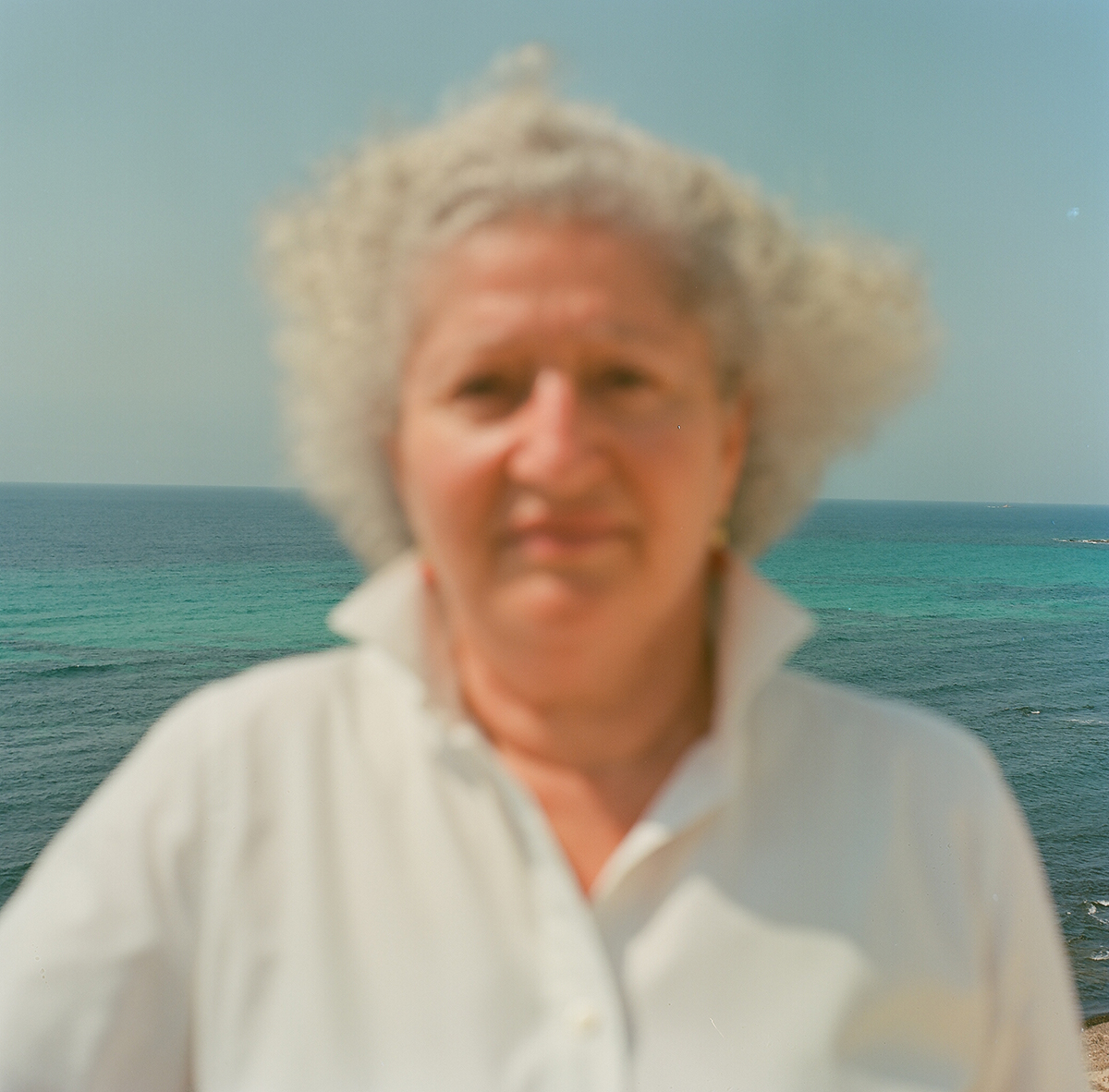
It’s late Monday afternoon in Sicily, and Anissa Helou is poised and pronounced in her trademark crisp white shirt and cat-eye glasses. The gorgeous home that she lives in along the Mediterranean coast is filled with light, even as the evening hours fast approach. The iconic Syrian-Lebanese chef, author, and blogger says she fills her days with walks to the market or local grocery store, experimenting with new recipes, brainstorming ideas for her books, and occasionally cooking for very lucky guests. While she prepares meals from her kitchen counter, she has a view of the sea to her right. It is a serene and idyllic life. But the decades-long journey that brought her from Beirut to the Italian island is punctuated by twists and turns that are yet to be documented in a memoir. In this interview, conducted via Zoom in June of 2023, I ask Helou questions that prompt her to reflect on that path, touching on everything from her thoughts on food and feminism to her favorite utensils and most vivid culinary memories.
Zahra Hankir: Tell us about your move to Sicily — it sounds delightful.
Anissa Helou: I’d been wanting to leave London for quite a while. I started thinking about Spain, Los Angeles, the Bay Area — different places where the weather is nice, that have good produce as well. And then I went to a food conference in Sydney with a Sicilian friend of mine. We were talking, and it was autumn, and she was telling me about the olive harvest. On a whim, I said, “Oh, I’m coming. I’m going to come to the olive harvest.” When I was there in the fields, I was thinking, gosh, it’s not like Mashta al-Helou, because they didn’t have olives in Mashta al-Helou, but the whole atmosphere felt like being there in Mashta al-Helou as kids. Then immediately I thought: this is it. This is like going home without going home. Sicily is the closest to where I was brought up and where I lived the first 21 years of my life, but without the political instability, and with a completely different culture that was totally exciting. A new language I knew partly, not as well as now, but an atmosphere that was familiar. The hospitality of the Sicilians, the way they view seasonality, the way they pay attention to produce, to their food, to how they cook. The first friends I met, I had coffee with them one day and then two days later, they invited me to their home for dinner. It had taken me more than a year in London to be invited anywhere.
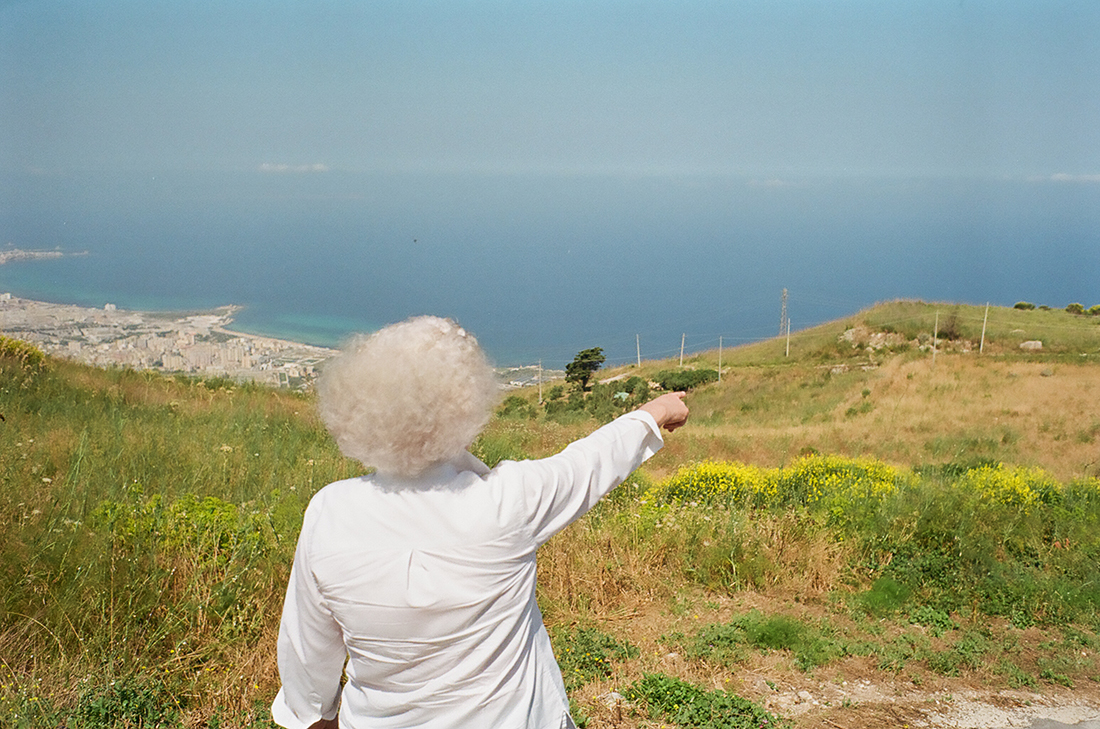
Zahra: How do you reflect on your formative years as a budding feminist in Beirut — specifically through the lens of your career? In previous interviews with various media, you’ve shared that you felt parts of your life there were stifling. And that observing the dynamic of the women in your family when they were cooking made you ponder your own future. Could you touch on the intersection between food and feminism in your life today?
Anissa: Neither my mother nor grandmother or aunt ever urged me to help them in the kitchen. My rebellion against domestication had nothing to do with them wanting me to do anything. They did everything at home and didn’t expect us to participate. Maybe we were spoiled, but I still loved being in the kitchen, I loved watching them.
When I started reading the existentialists, [my rebellion] became a reality. But I had always been kind of different. I always wanted my own room. I didn’t want to live the life I was being brought up in. Having rejected cooking when I was young, and having then gotten into cooking for a totally non-feminist [reason], I then began to think that food and recipes and cookbooks were more cultural than [a form of] domestication.
Before I seriously took up cooking, my approach to food was hedonistic. And, of course, [my approach was] rebellious because I didn’t want to cook on a daily basis — which I still don’t do, by the way. (I’ve never cooked for anybody on a regular basis except once, for my nephew, who was staying with me for two weeks. I now occasionally cook for my mother, which is very amusing because it’s a reversal of roles, and I enjoy doing it.)
The interesting thing about food and feminism is that I had an atypical approach to it. Because if you think of food as culture, then you really should know about food and learn how to cook as much as you can, regardless of the social context of it. If you don’t, you’re losing the culinary traditions of your family or your country. This is what my approach is now — mainly to preserve culinary traditions for future generations in my work.
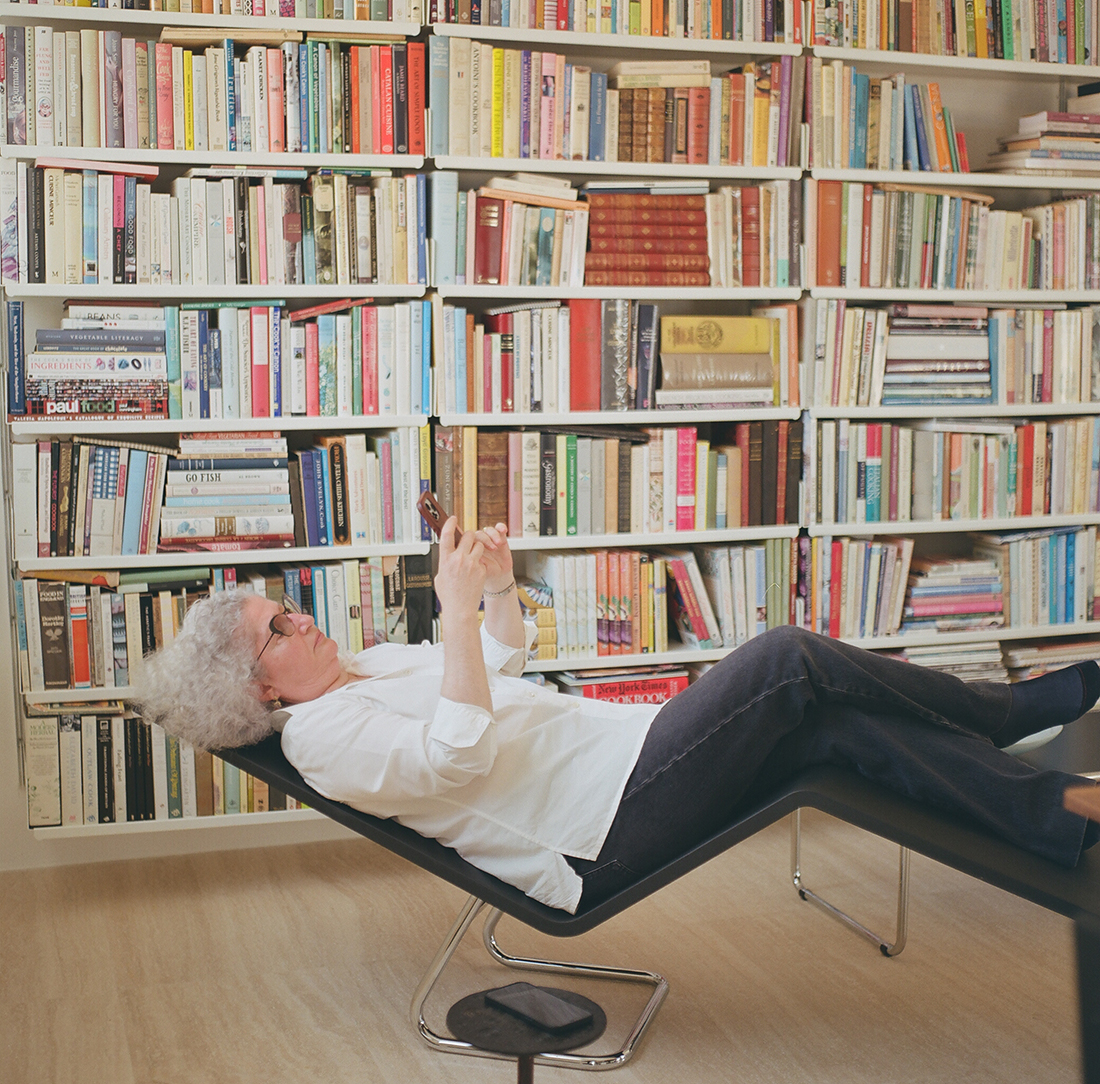
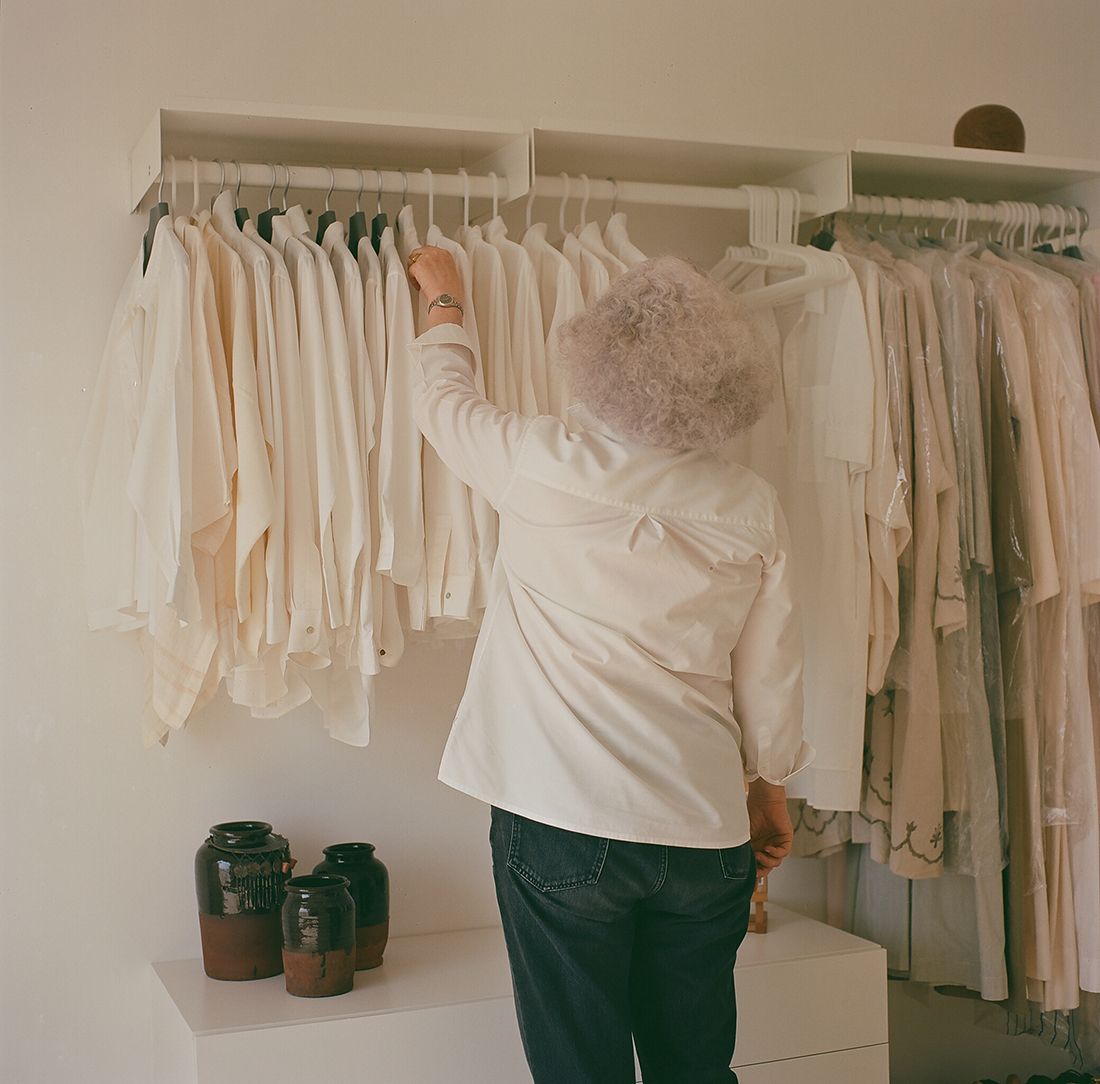
Zahra: Your writing career began in the 1990’s, when there was a dearth of “Middle East” cookbooks. So-called “Middle Eastern” cuisine didn’t have the recognizability back then that it enjoys today. With the rise in its popularity, there’s also been something of a commoditization, even exoticization, of this food. Would you agree? I’m wondering what you think about how this cuisine is viewed today.
Anissa: Well, I think it’s great that it’s entered the mainstream. There’s no question about it. When my first book, Lebanese Cuisine, was published in 1994, I tried to get freekeh into the food department at Harvey Nichols, but they were totally uninterested. People didn’t know about argan oil. They didn’t know about mastic. They didn’t know about rose water. All these ingredients were mysterious, even to chefs. The fact that Lebanese food, Moroccan food, and Syrian food have entered the mainstream is wonderful. This has, in a sad way, been amplified by the Syrian uprising and the fact that there are so many Syrians abroad who have exposed the communities they are in to Syrian cuisine. The annoying thing, apart from the globalization of dishes like hummus and tabbouleh, is that the names of some dishes have become generic rather than the actual name of the dish.
There’s a lot of work and thought to be done on… whether to go [refer to cuisine as] regional [or national]… there are pros and cons. But nobody talks about “European” or “American” food in bulk like that… they talk about Southern cuisine, for example. This notion of “Middle Eastern” cuisine, lumping all the countries of this geography together is, well, I don’t know if it’s sad. But it’s annoying because there’s so much more [to the cuisine].

Zahra: If you were in a random supermarket in the West, and you saw chocolate hummus in the aisle, what would you think? What comes to mind?
Anissa: I absolutely hate it and find it ridiculous! [laughs] But you can’t do anything about it.
Zahra: I’d love to hear about your mother’s continued influence on your life, the relationship between you two today, and how that impacts your approach to food.
Anissa: I love looking at my mother. She’s very beautiful: she’s regal, she’s very distinguished, she’s very classy, to use a common term. But also she’s beautiful in the way she works. She has the most beautiful hands, and she’s not particularly precise the way I am — she’s rather messy. When I’m with her in Lebanon and I try to interfere with the way she cooks, she gets annoyed.
She’s a kind of missed feminist — in one sense at least: she wanted to be more than what she ended up being. She got married too young, when she wanted to finish her education. She wanted to work, then she became a mother of five and kept the house running and brought up her children.
There’s something about my mother that makes me feel sad for her. But at the same time, she’s happy and serene with where she is, and she lives her life in a dignified way… I look up to my mother and continue to be influenced by her to a certain extent. I’ve learned a lot from her, obviously, and I still learn a lot from her. And although I don’t necessarily aspire to be like her in everything, she is a woman I admire.
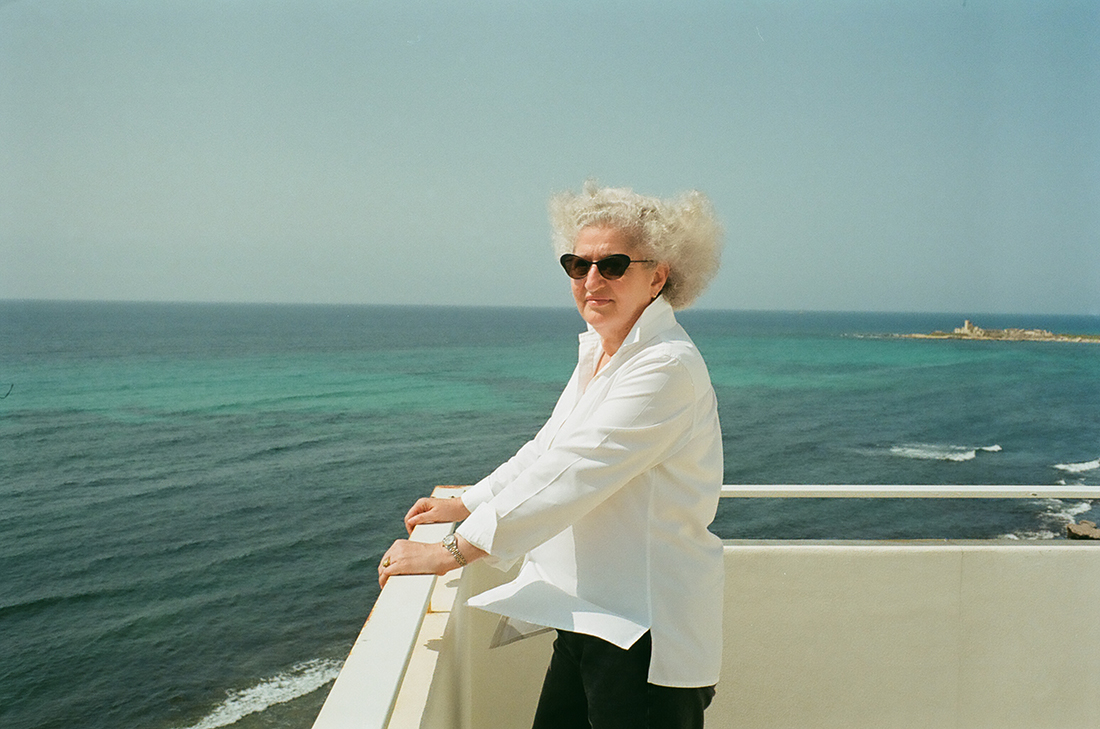
Zahra: What was the last dish you cooked for her?
Anissa: I made her Emirati biryani with a leg of lamb marinated in saffron yogurt, and she liked it a lot.
Zahra: I’m curious what a typical day looks like for you.
Anissa: I always wake up very early. I can see the sea from my bed. I stick my head up and look outside to see if it’s calm, or what the color of the sky is. And it’s generally always beautiful. But what is wonderful is that the colors change practically every day — the sunset is another obsession! I have breakfast sometimes on the terrace, sometimes inside. If it’s market day, I’ll go to the market. But, usually, I go to a very good greengrocer. Then if I’m working, I’ll be testing recipes, and if I’m not, I’ll invite somebody over for lunch. My space is really light and beautiful, and of course, I can see the sea. I enjoy staying at home and working. It’s a very peaceful environment with very few distractions. I consciously didn’t enter into the social life here… I mean, I see friends maybe half the time. It’s a place where I’m very happy on my own.
Zahra: When you’re buying produce, do you find everything you need in Sicily? Are there things you can’t find?
Anissa: [Laughs]. Lots of things. I’ll give you an example. If I want to make tabbouleh, I have to go to my greengrocer and ask him specifically for a crate of parsley because they only use parsley as garnish here. He will think that I’m totally mad because why would I want a whole lot of parsley when Sicilians only use a few sprigs? And so I explain to him what I’m doing with the parsley. But even then, the parsley will be overgrown and I’ll never be able to make a really good tabbouleh. The spring onions here are in season, so I can’t buy spring onions year round. The same goes for mint. It’s funny, because it’s a place that reminds me of home, but cooking Lebanese food in particular is not so easy here. Or cooking anything that’s not local is not so easy because they love their food here, and there’s no globalization in Sicily.
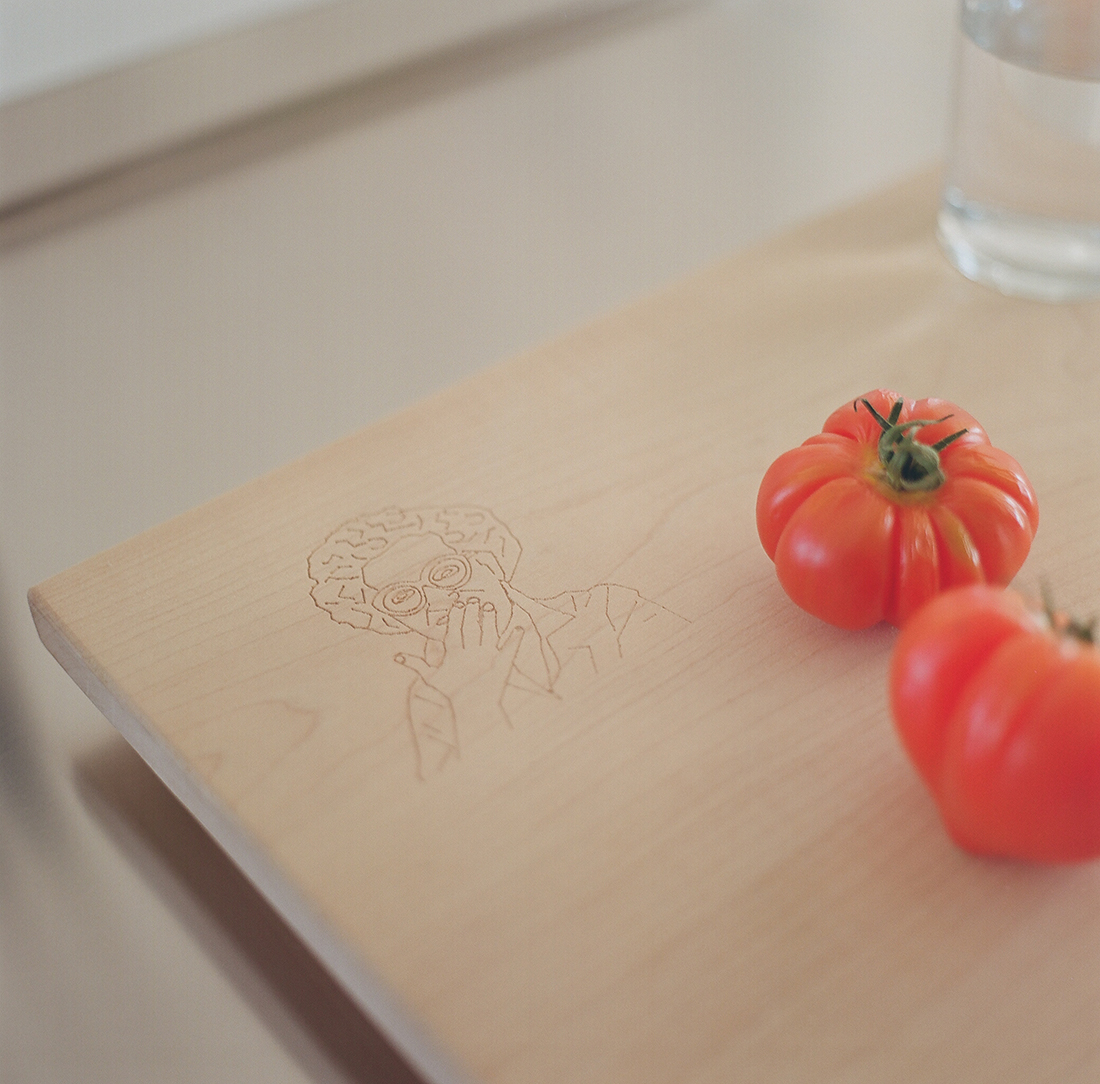
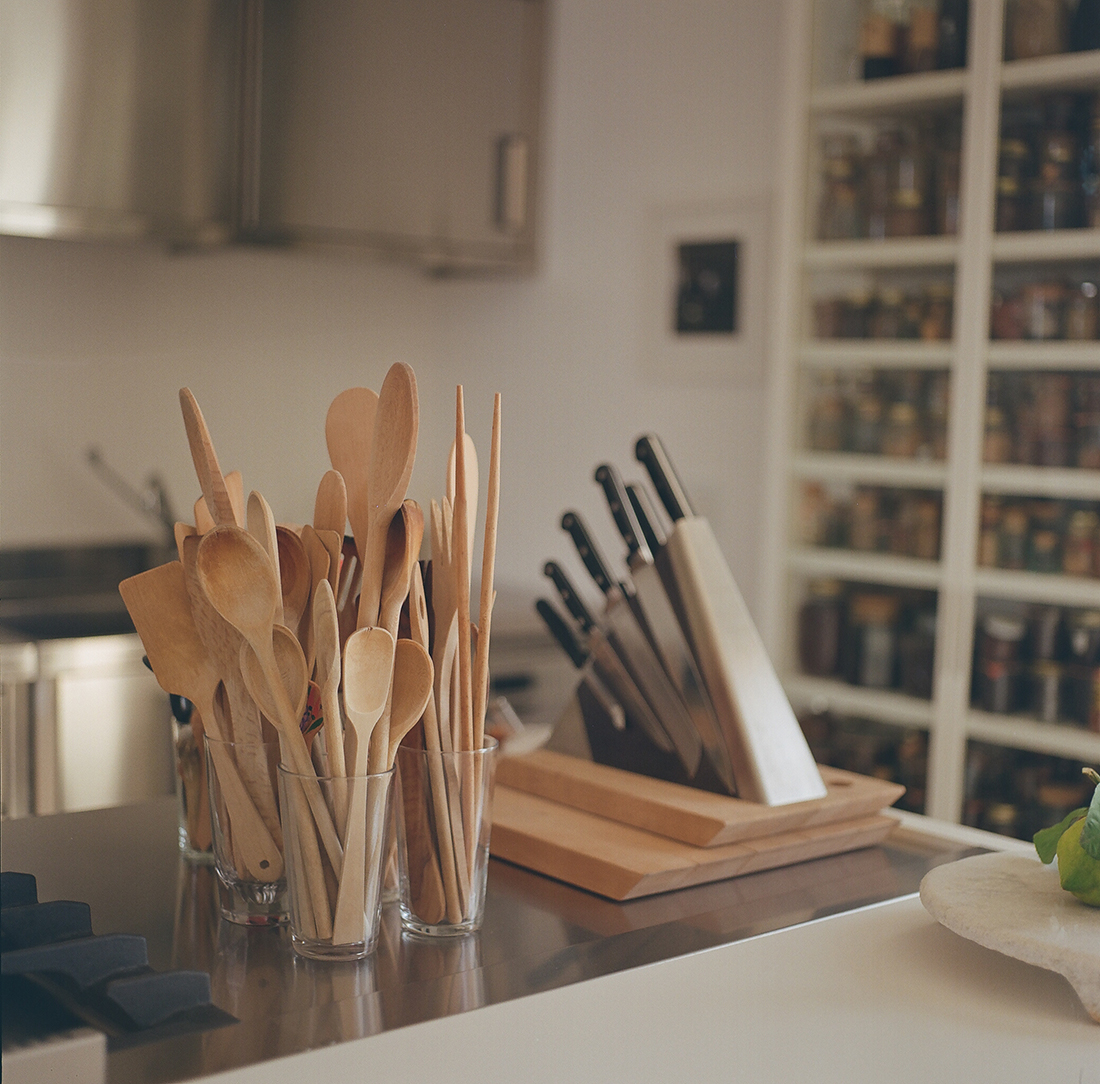
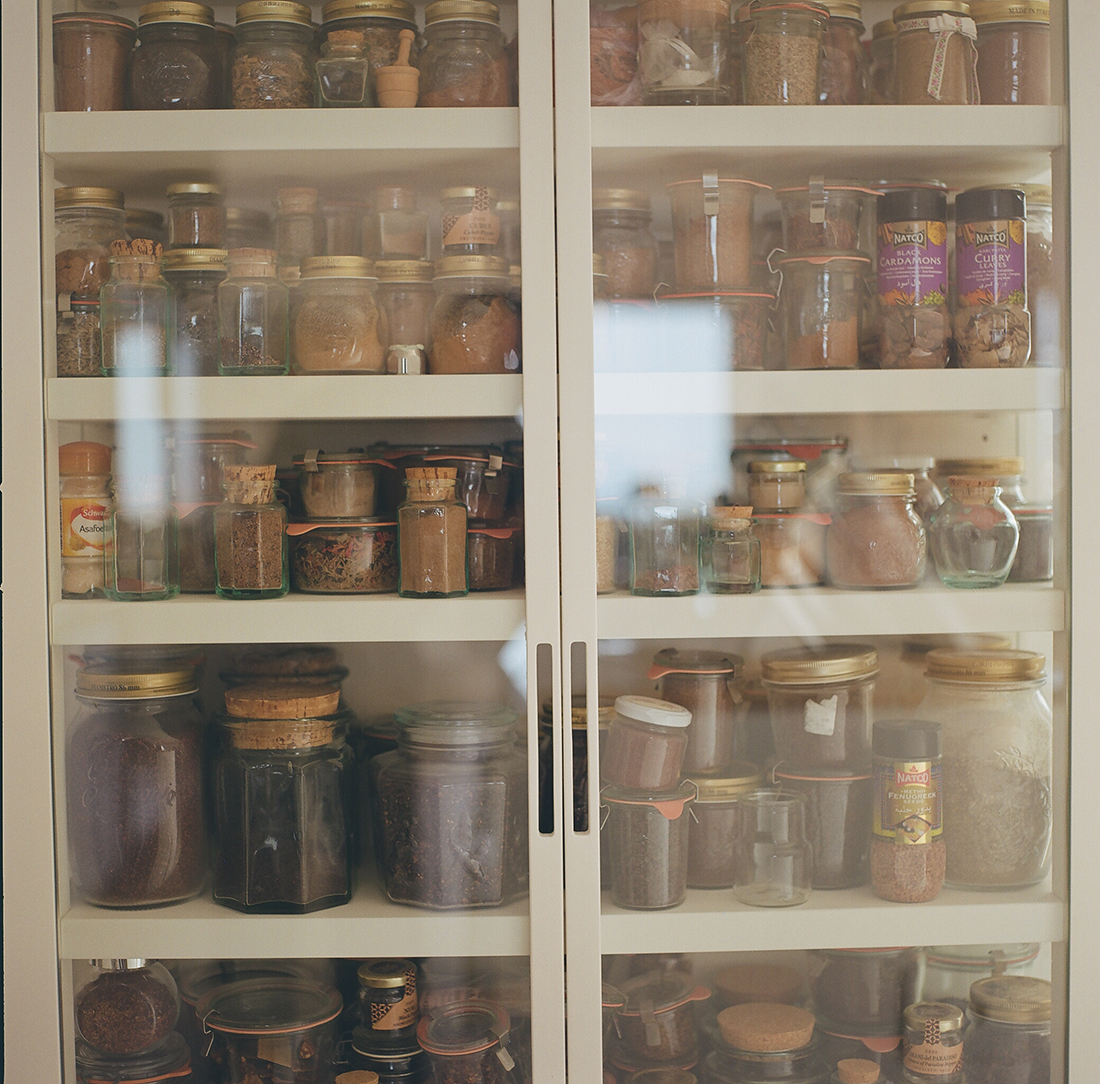
Zahra: Has your career in art had an impact on your career in food? What is the interplay between those two areas of your life?
Anissa: The cultural approach for sure, and the sense of aesthetics. I’m particular about what my kitchen looks like, without compromising on the practical aspect. But also how I prepare my food and how I present it — it’s very important that everything looks beautiful, all the time. Even when I’m butchering a leg of lamb, I don’t like a mess in the kitchen. I bicker with my mother because she’s not a very tidy cook. If I’m chopping parsley, then I clean the chopping board before I chop the mint, and I clean the chopping board before I chop the onion, and I clean the chopping board before I chop the tomatoes. My workstation is always impeccable… Everything I use has to be good-looking. My pots have to be beautiful, my knives have to be gorgeous. I don’t mind the extra time I spend in the kitchen to have my food look exactly how I want it to look, and to have my kitchen look beautiful as well.
Zahra: Do you have any favorite utensils that have nostalgic value?
Anissa: I can’t say I’m attached to any particular thing… I have a beautiful spice cabinet, and I’m very attached to my spices, even if I don’t use more than half of them. There’s nothing that I’m attached to except the concept of having very good pots, and very good knives… and large chopping boards.
Zahra: Who do you listen to while you work?
Anissa: Sometimes if I’m feeling nostalgic about my youth in Lebanon, I will listen to Françoise Hardy and Joan Baez or singers from the 70’s. But often I will listen to classical music or music from a culture different from my own. Occasionally, I will put on Umm Kulthum or Abdelwahab or Cheb Mami, depending on what I reach out for in my library.
Zahra: How do you arrange your books? And what books do you read besides cookbooks?
Anissa: By subject matter. To be honest, I refer to very few cookbooks. I have two dozen favorite cookbooks, and they’re the ones I go back to all the time. I used to love novels and I used to read a lot. I don’t anymore because social media has ruined all our brains [laughs]. I’m quite obsessed with news, so I read news a lot. I used to read more before I had a television. I have a home cinema and I watch a lot of Korean TV series.
Zahra: You have a strong personal connection to Syria. I wonder about your thoughts around the preservation of culinary traditions there.
Anissa: The situation in Syria is totally tragic. There’s a risk of lost culinary traditions from an agricultural point of view more than a cooking point of view. But also, people who have been displaced, who have gone to other countries, they won’t be able to cook the way they cooked at home. In a generation or two, some of these recipes… will be completely corrupted. I won’t go to Syria as long as this regime is in place. But if things change, I might want to write a book about Syrian cuisine — an in-depth look at Syrian cuisine, not only food from Aleppo, but from across the country.
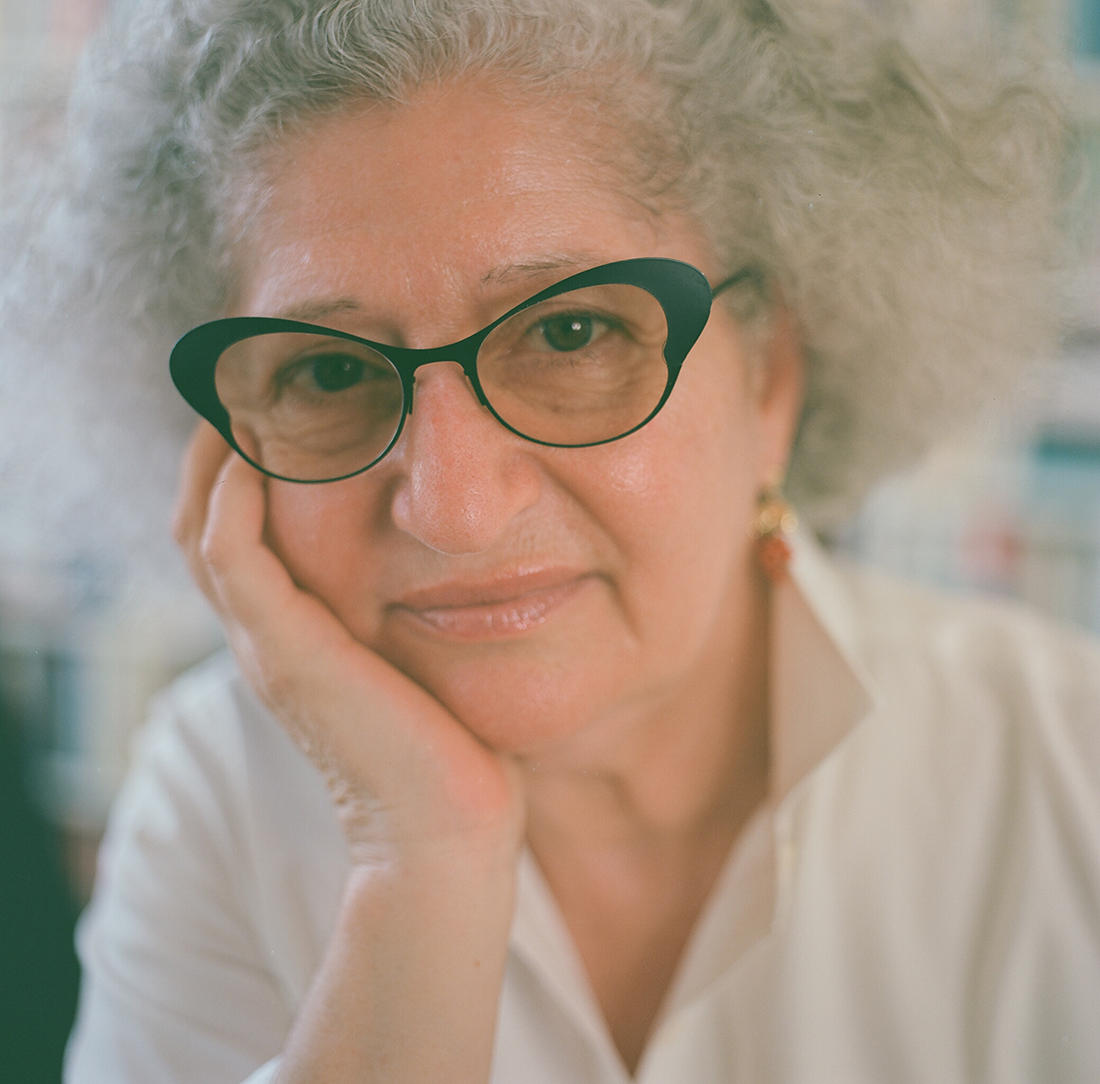
Zahra: Do you have vivid food memories from when you were a child?
Anissa: I’ve got lots of food memories, but the two most vivid and, let’s say, beloved memories are these: the kibbeh my mother and grandmother used to pound in a jurn when I was young — now I’m 71, so I’m talking about 60 years ago. Then the other memory is that of my aunt in Syria making bread in her tannur. She had a courtyard and she had placed her tannur in the field across from the courtyard, you had to cross a little lane. She had asbestos hands and didn’t use a cushion to protect from the heat. She just slapped the bread against the wall of the tannur with her hands. She was old and without teeth. And she worked this dough and produced amazing bread. These are vague memories, but I can still see her, Amtu Zahiyya, with her red face over the tannur.
Zahra: I’m curious about whether you might eventually write a memoir. I know you’re now working on a book about regional foods in Lebanon. But do you have a memoir in the works?
Anissa: Yes, I do. But I’m still reluctant to write about my life. I don’t know why. I know I’ve had a very interesting life, but I still can’t find the angle for me to make it interesting enough, and also to want to open up. I’m still not convinced by the idea that I should tell people about my life.
